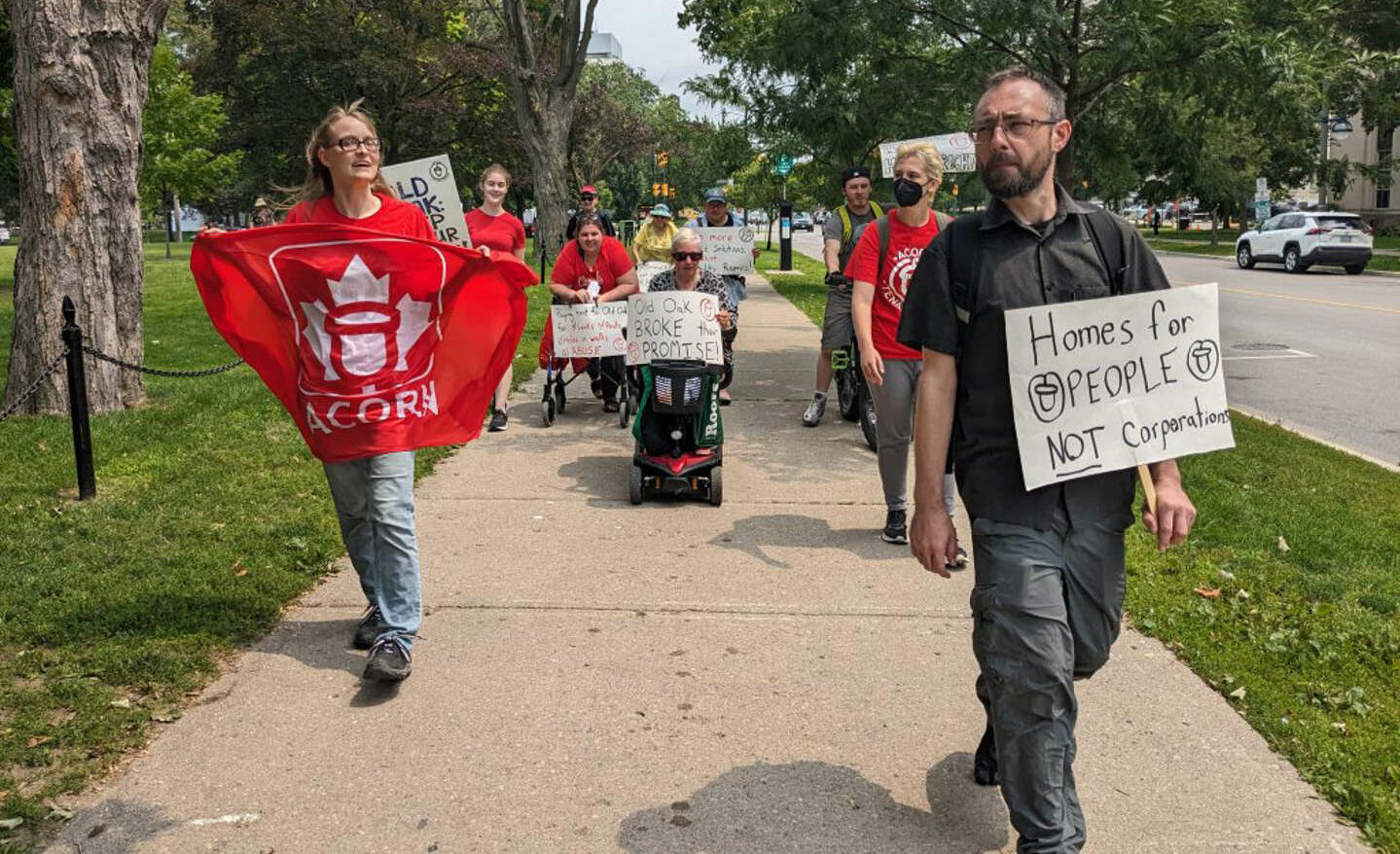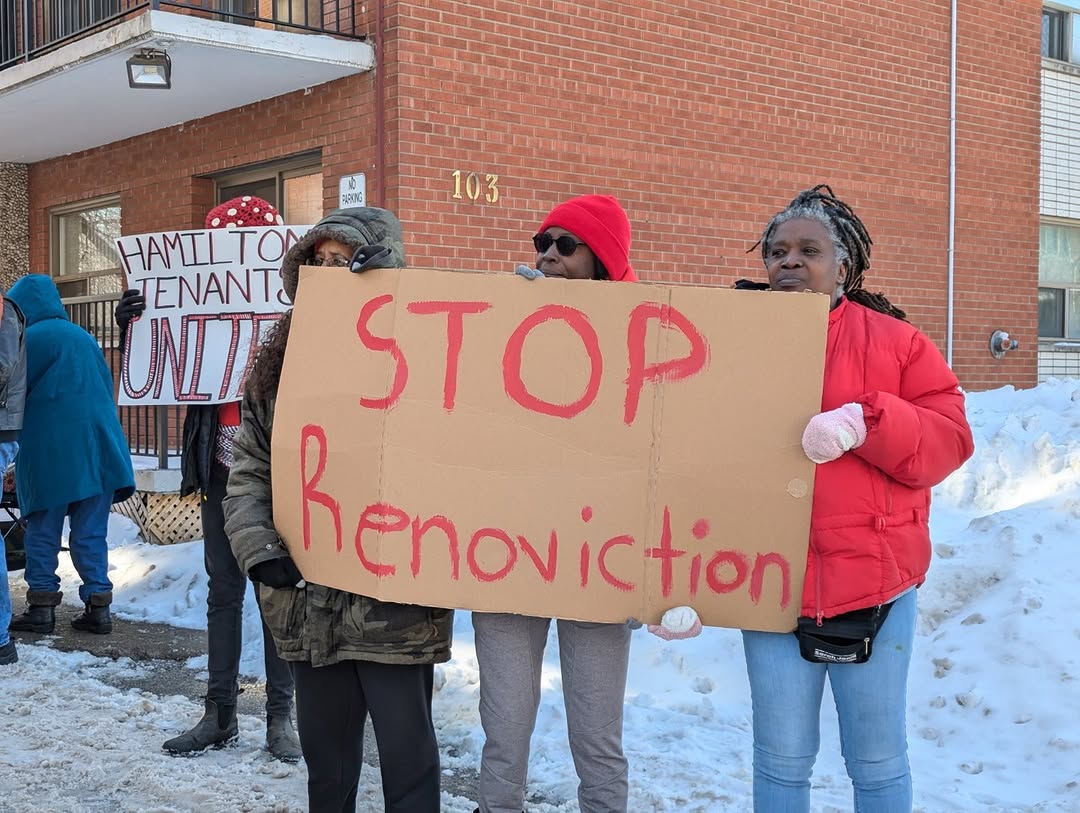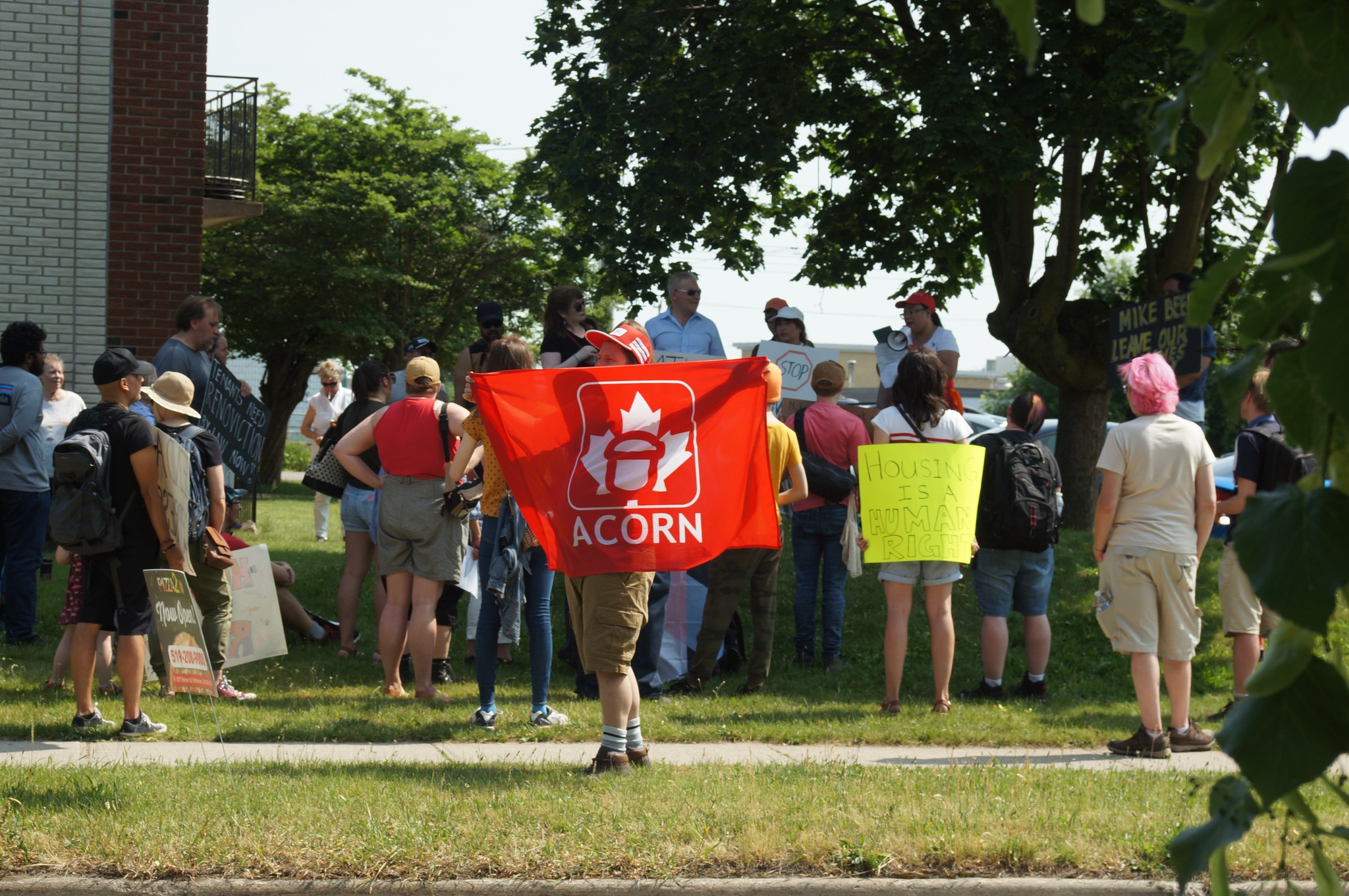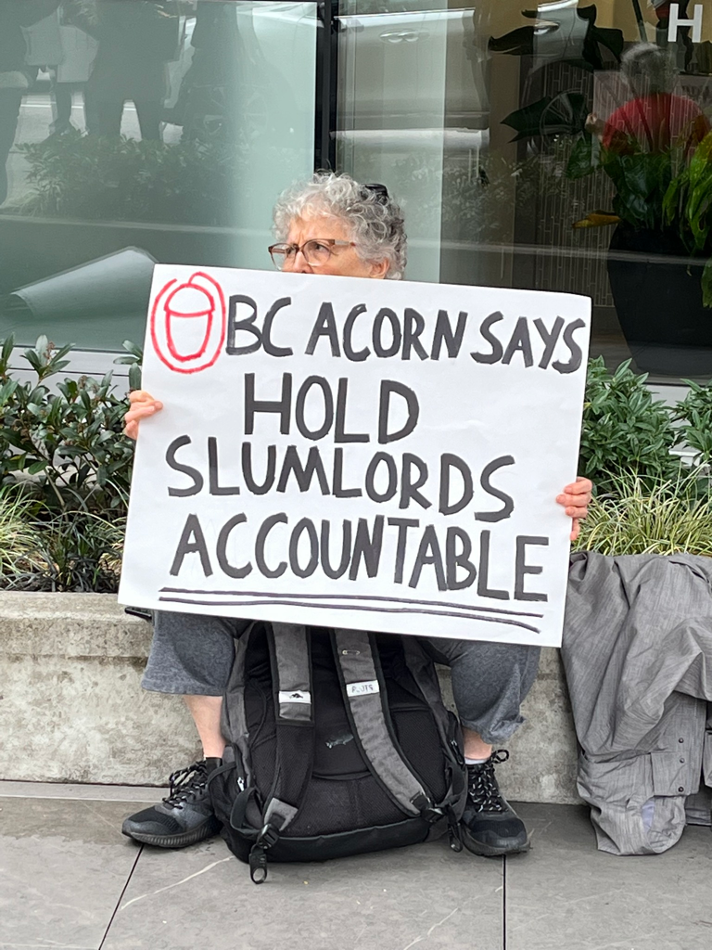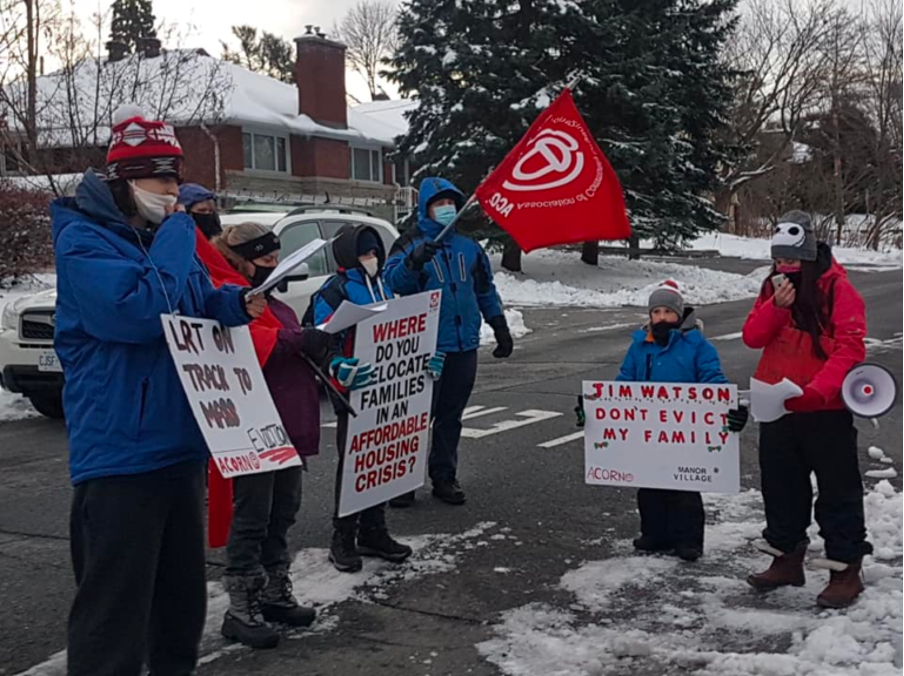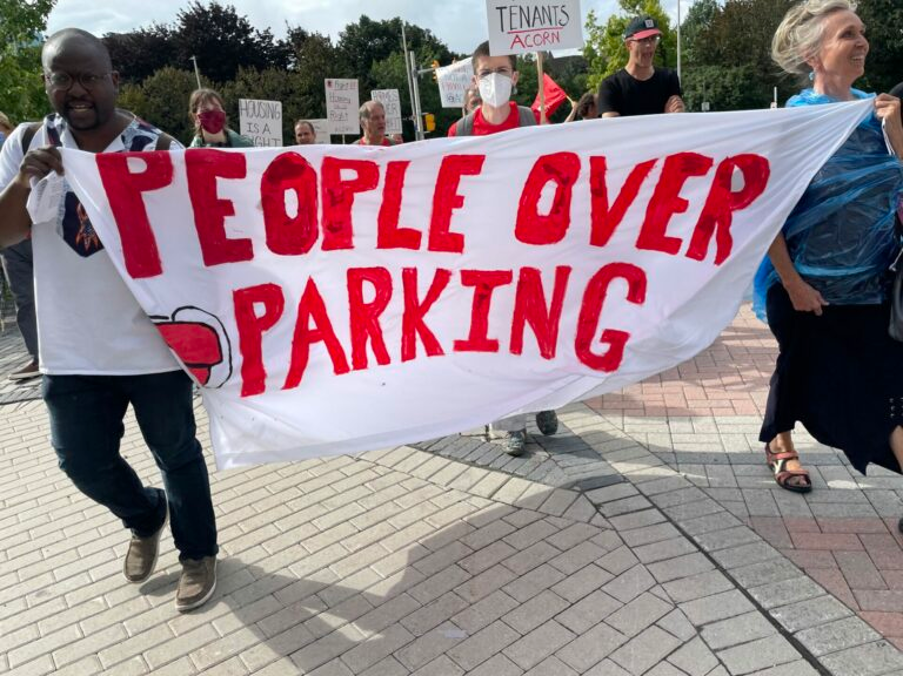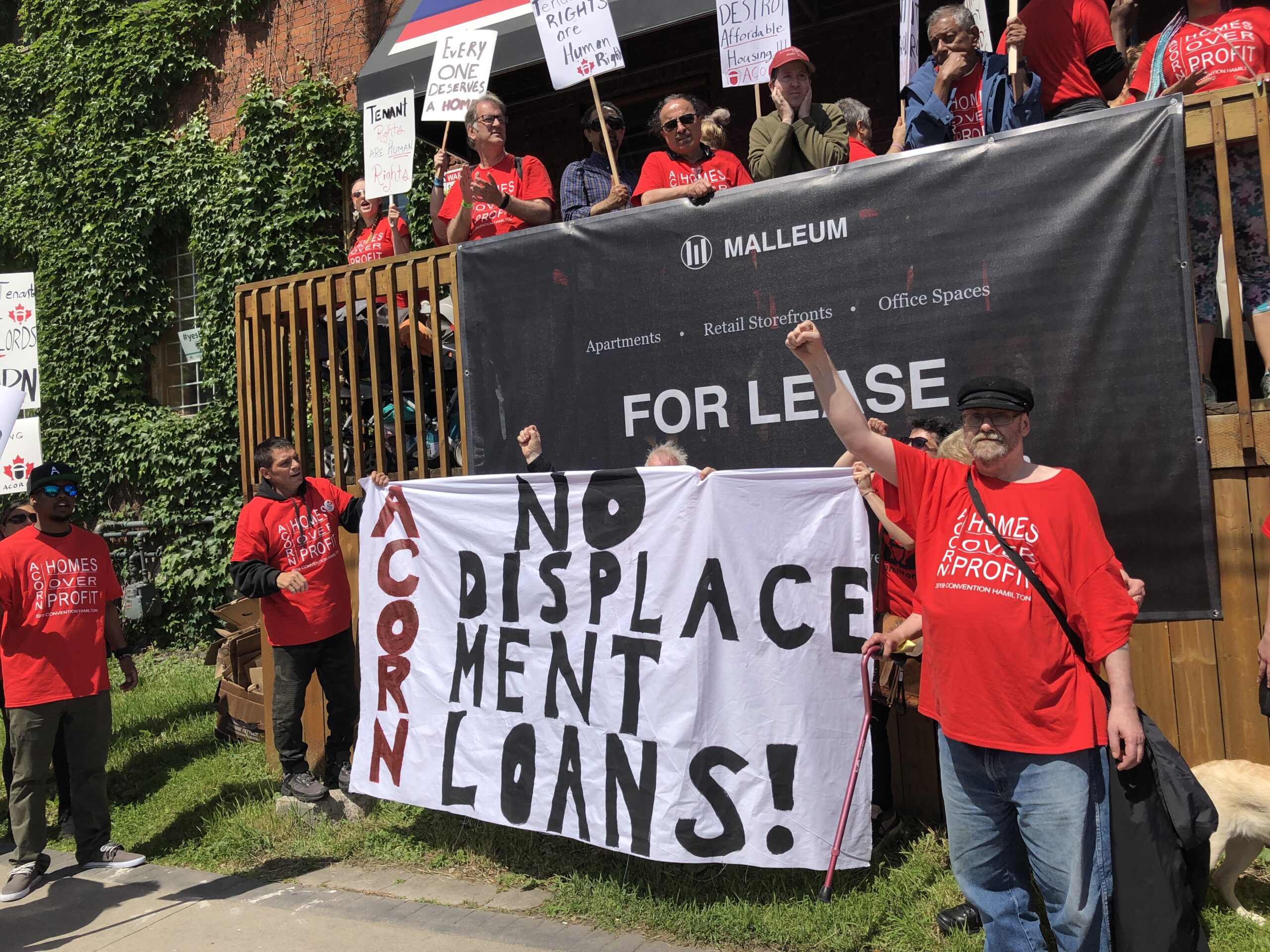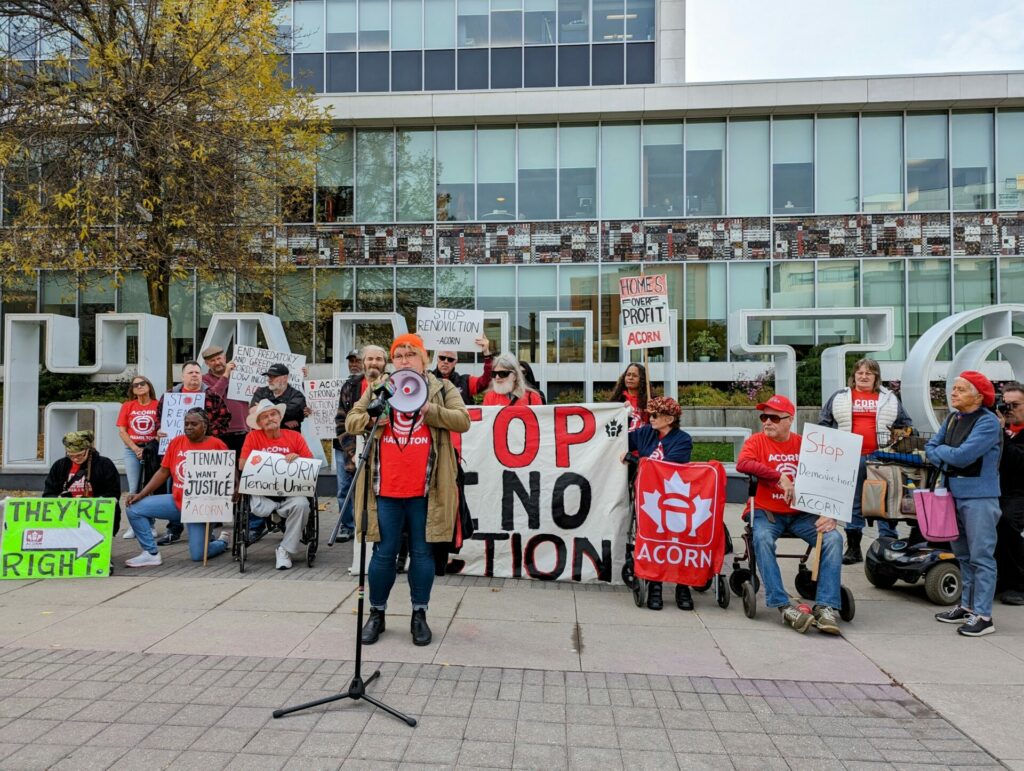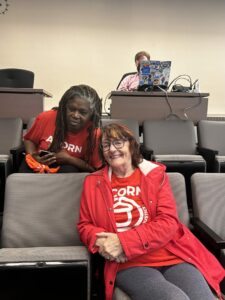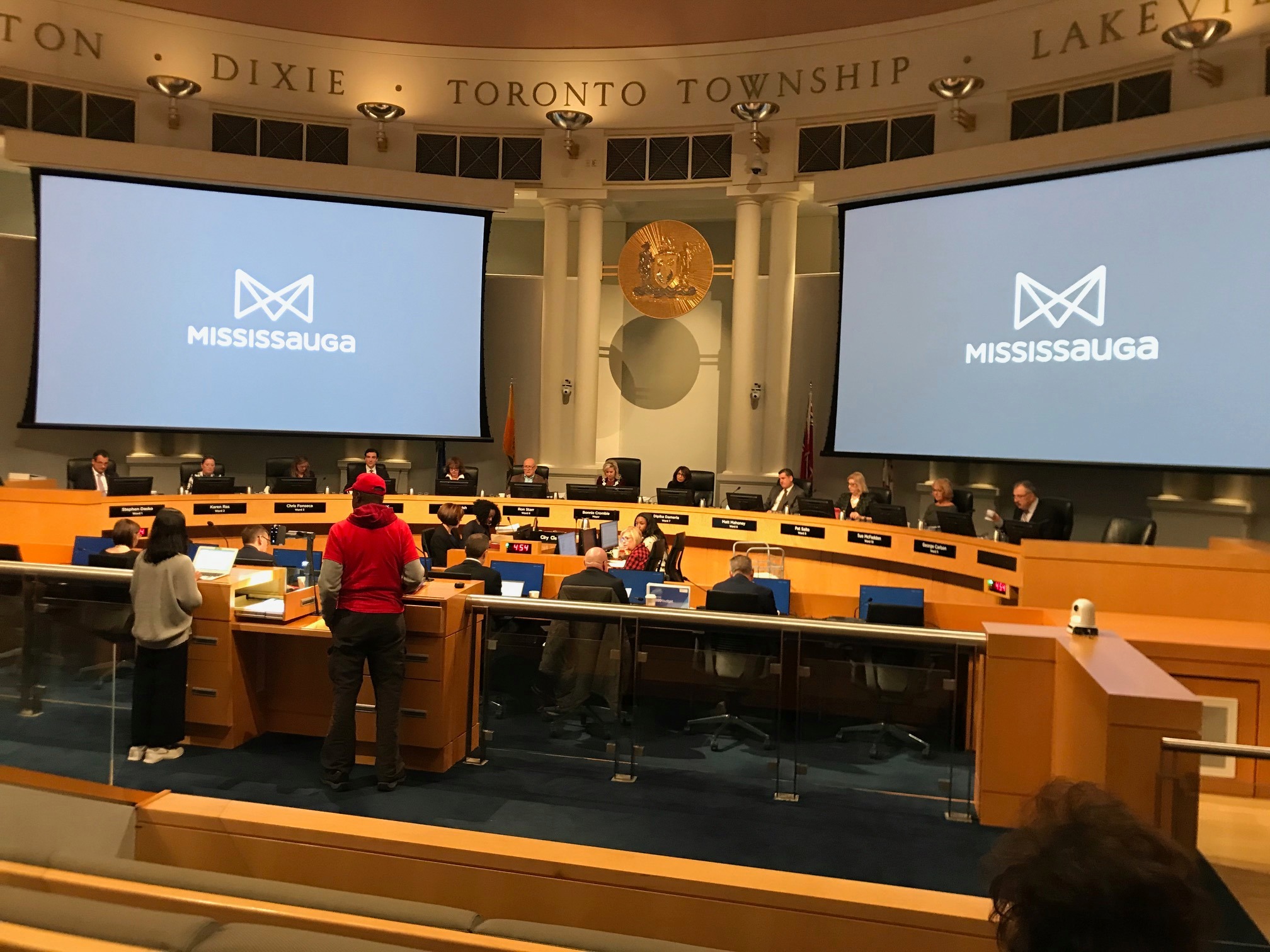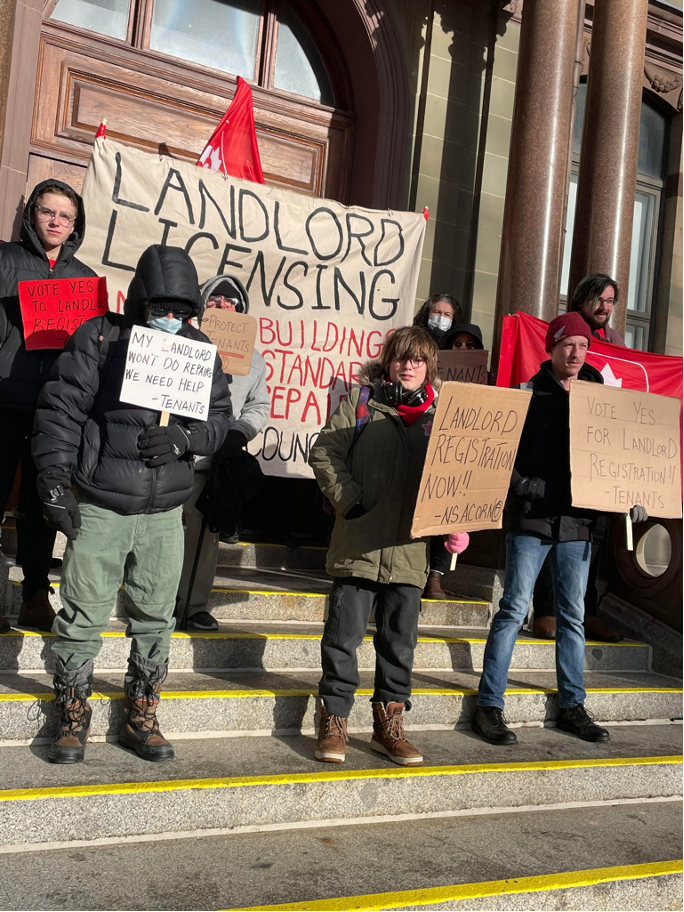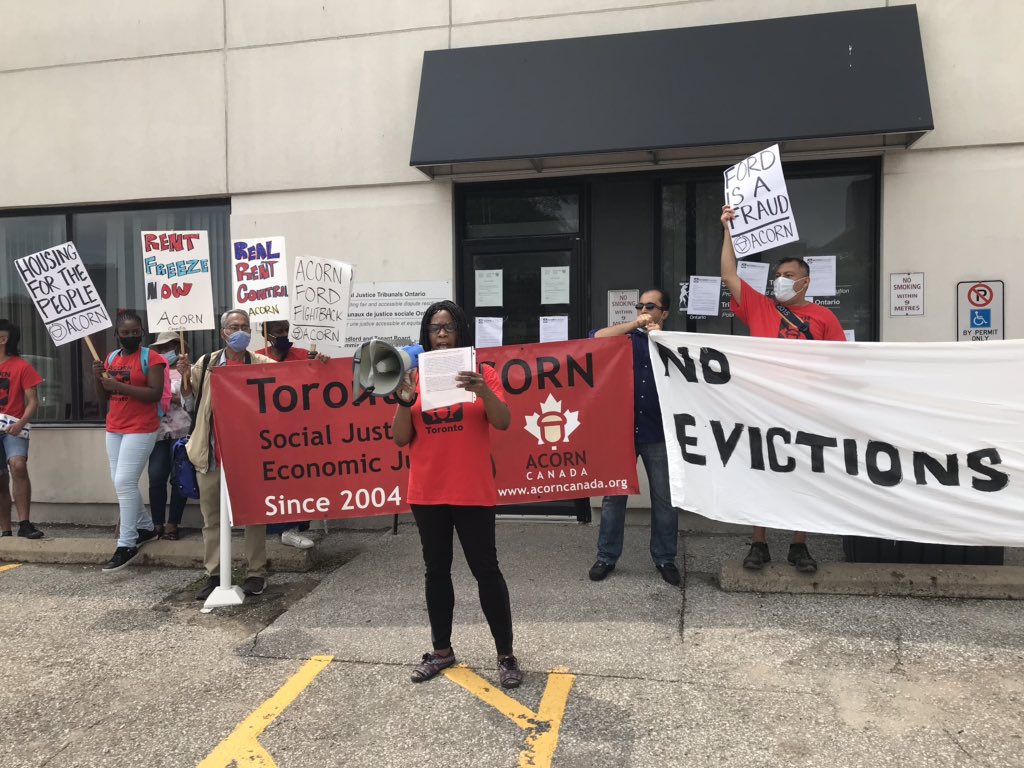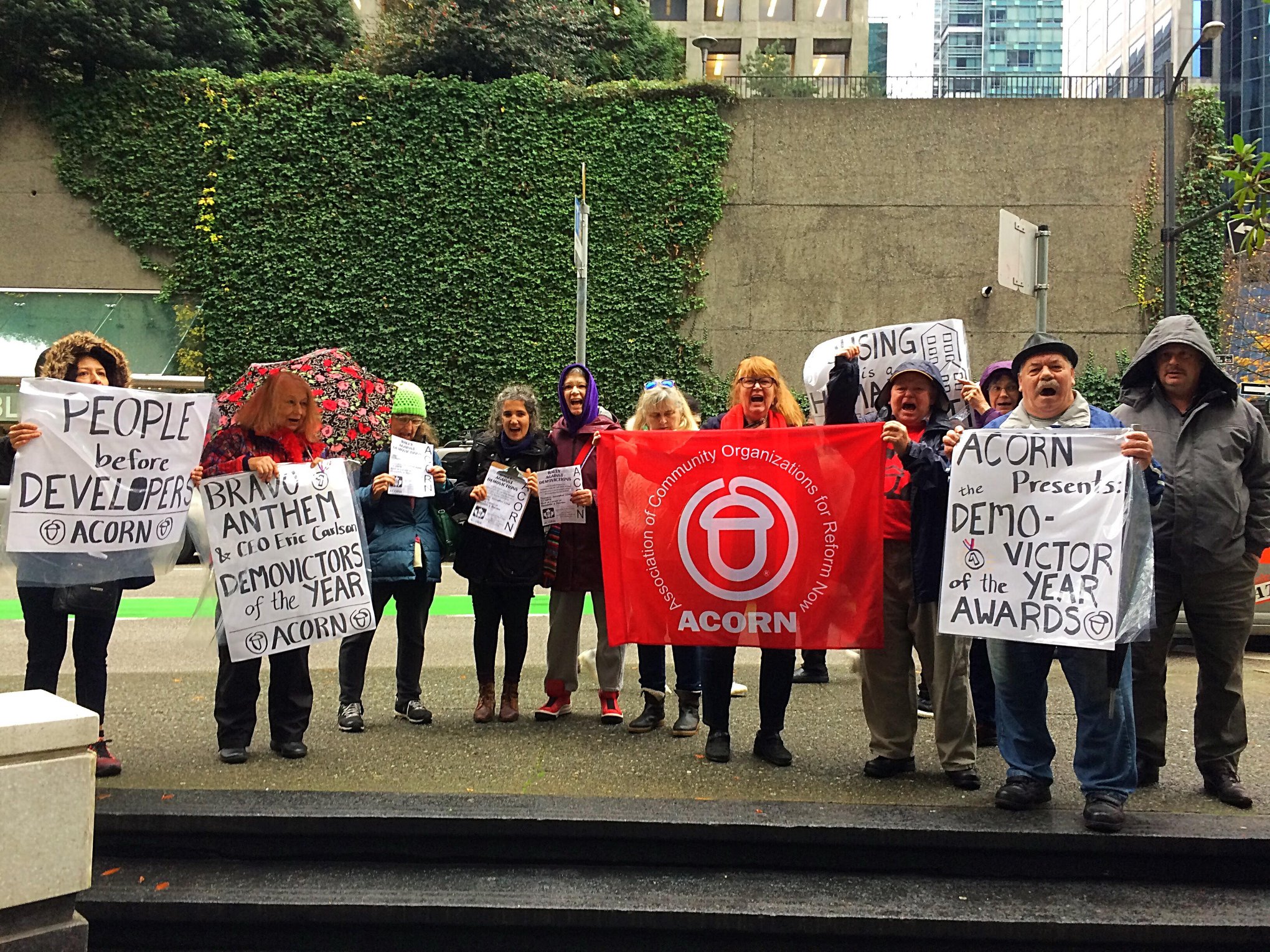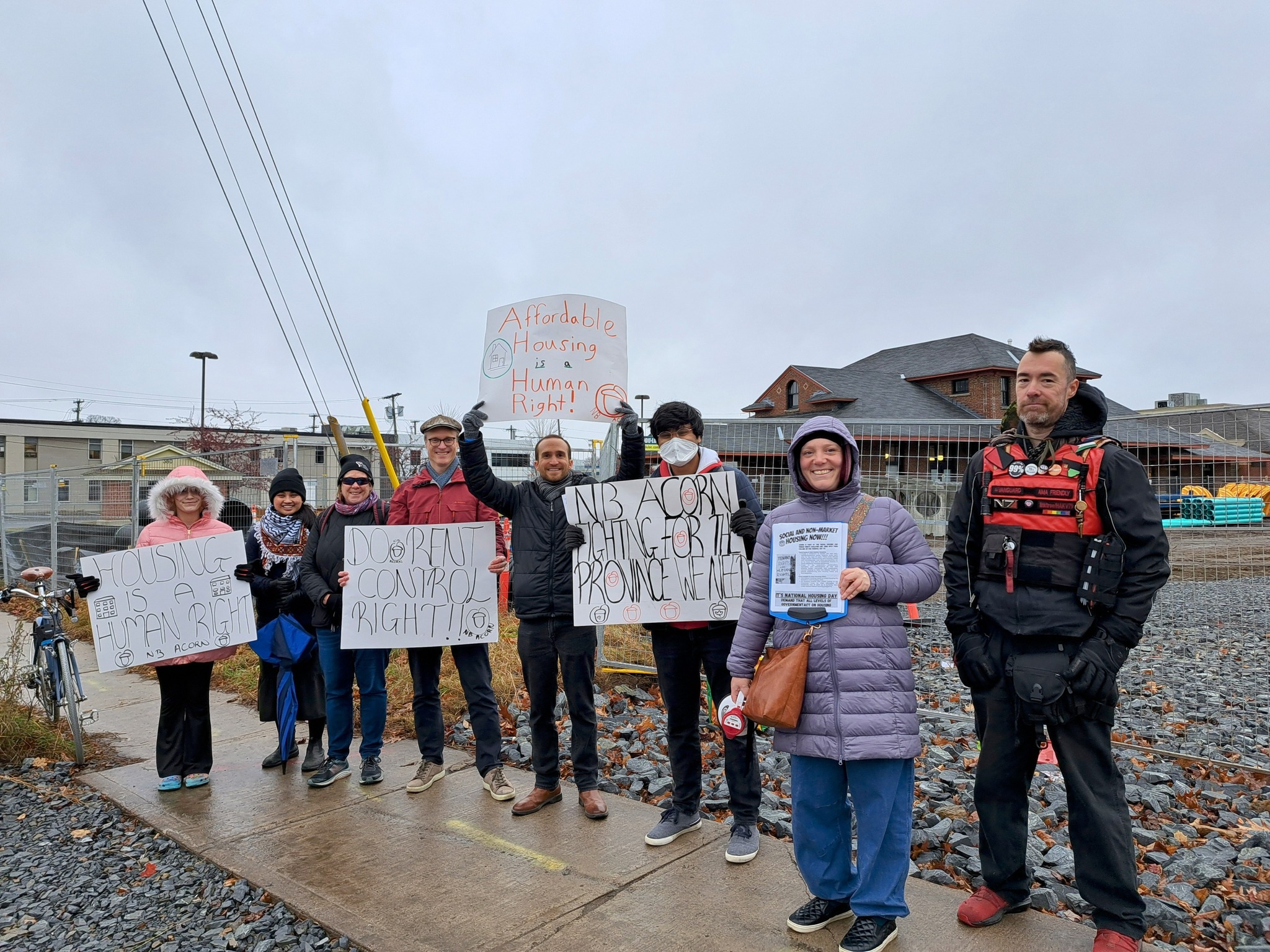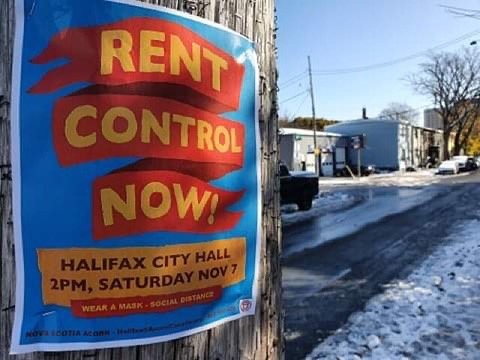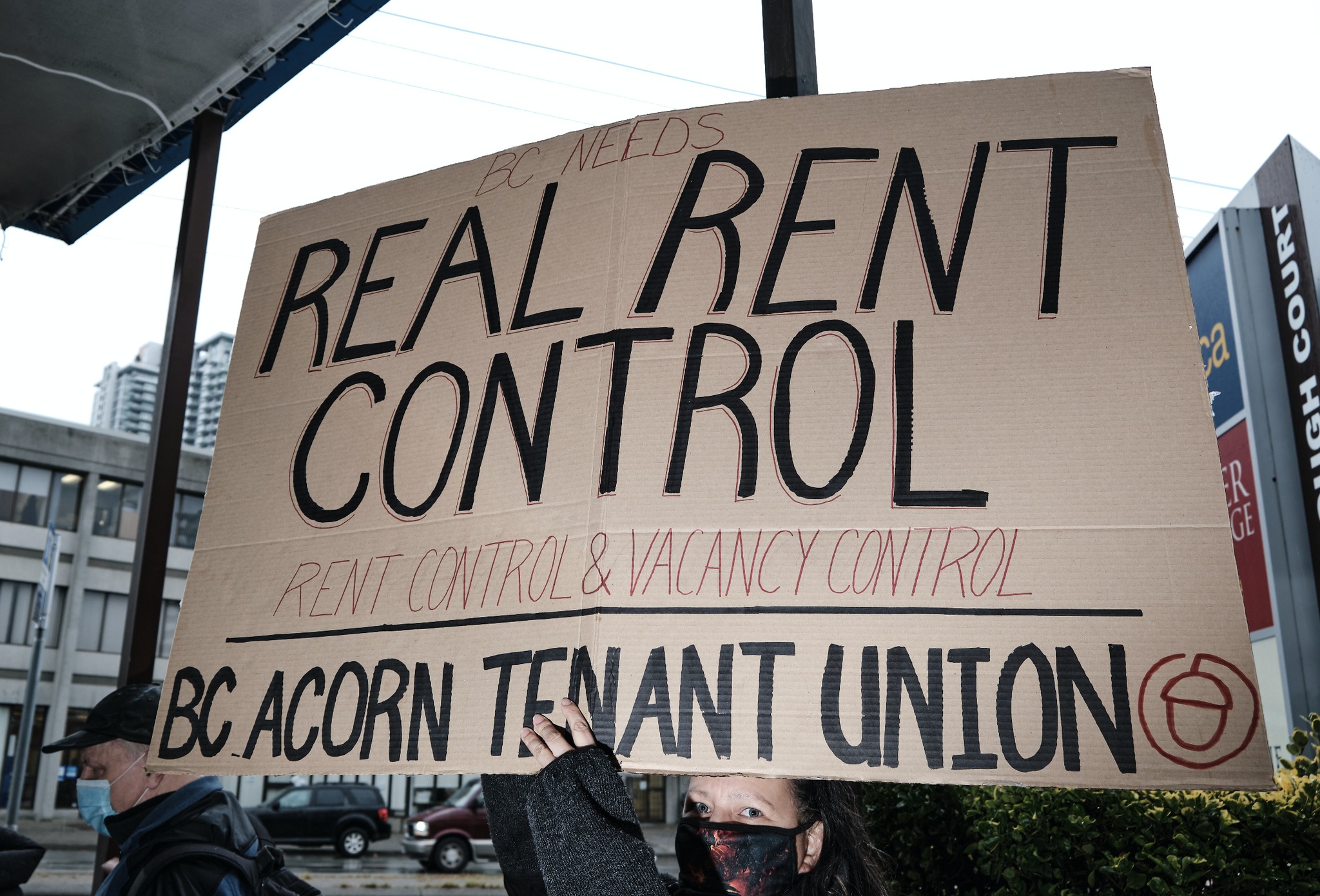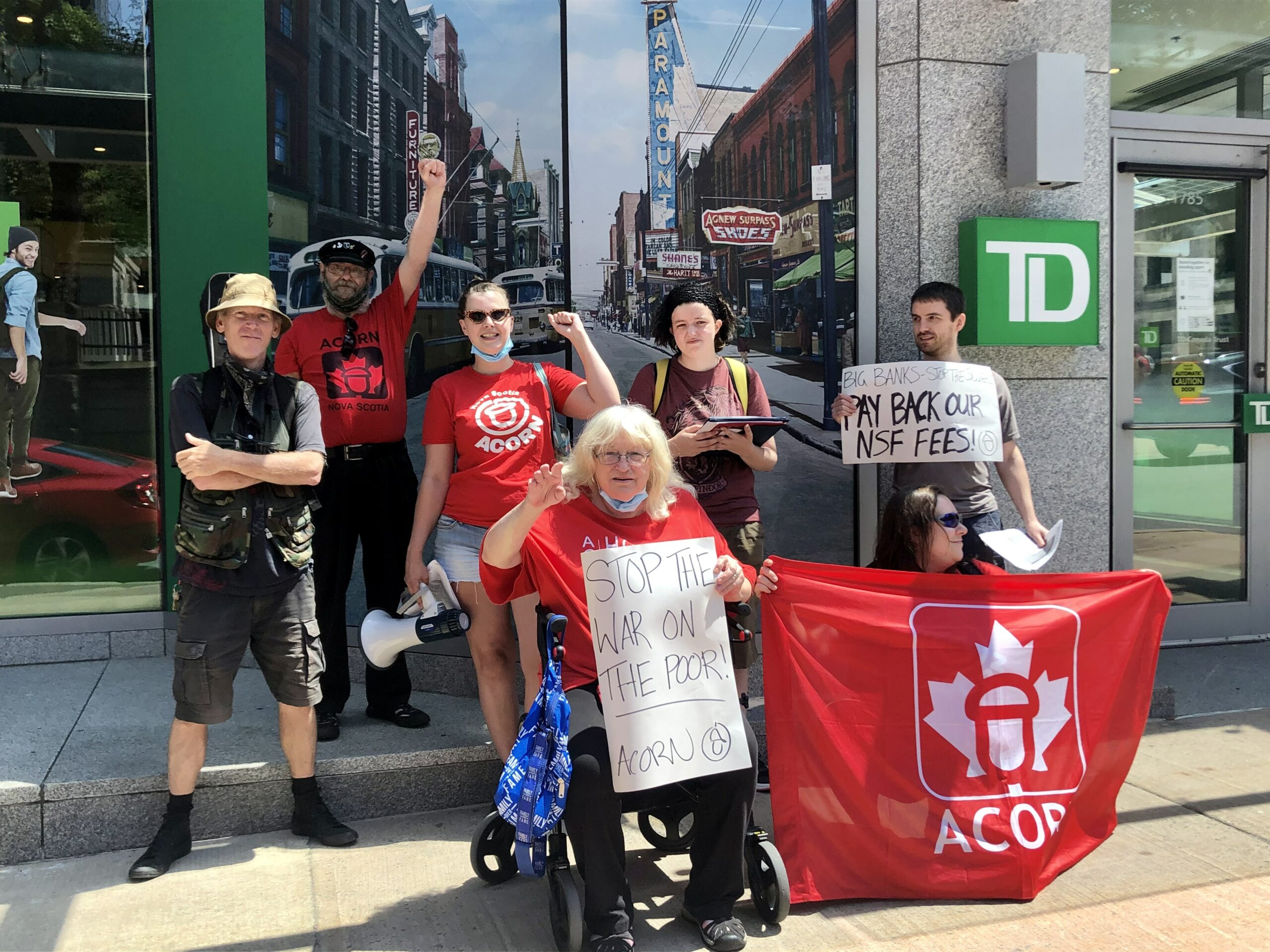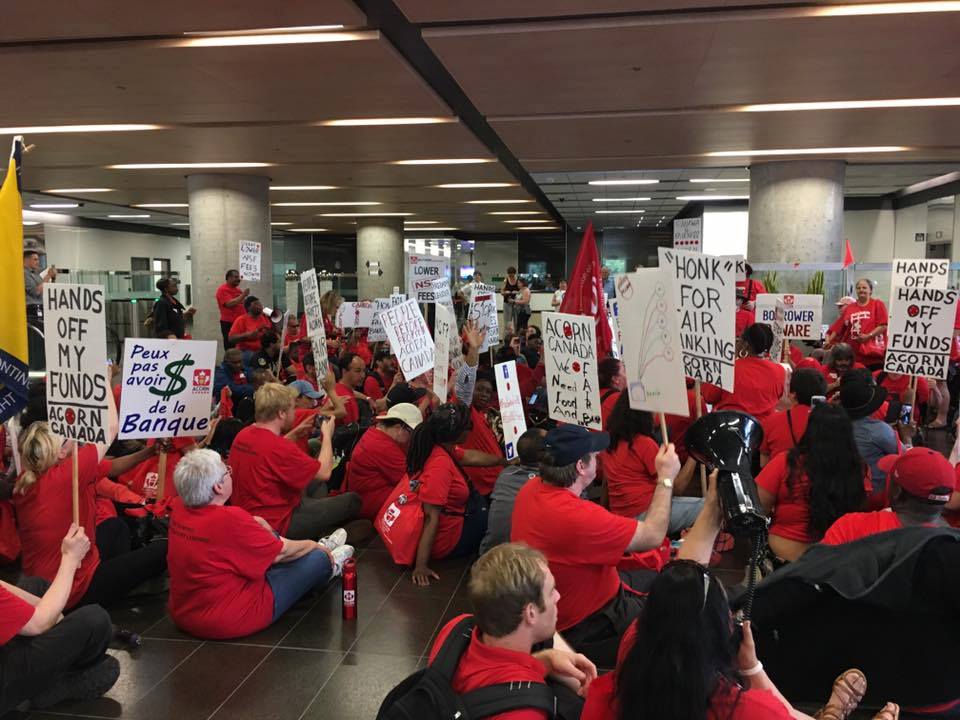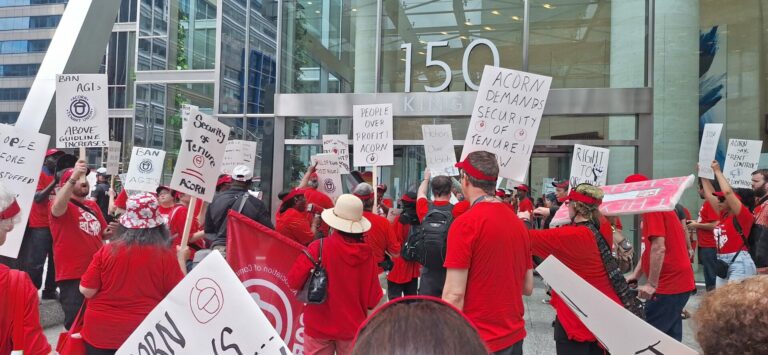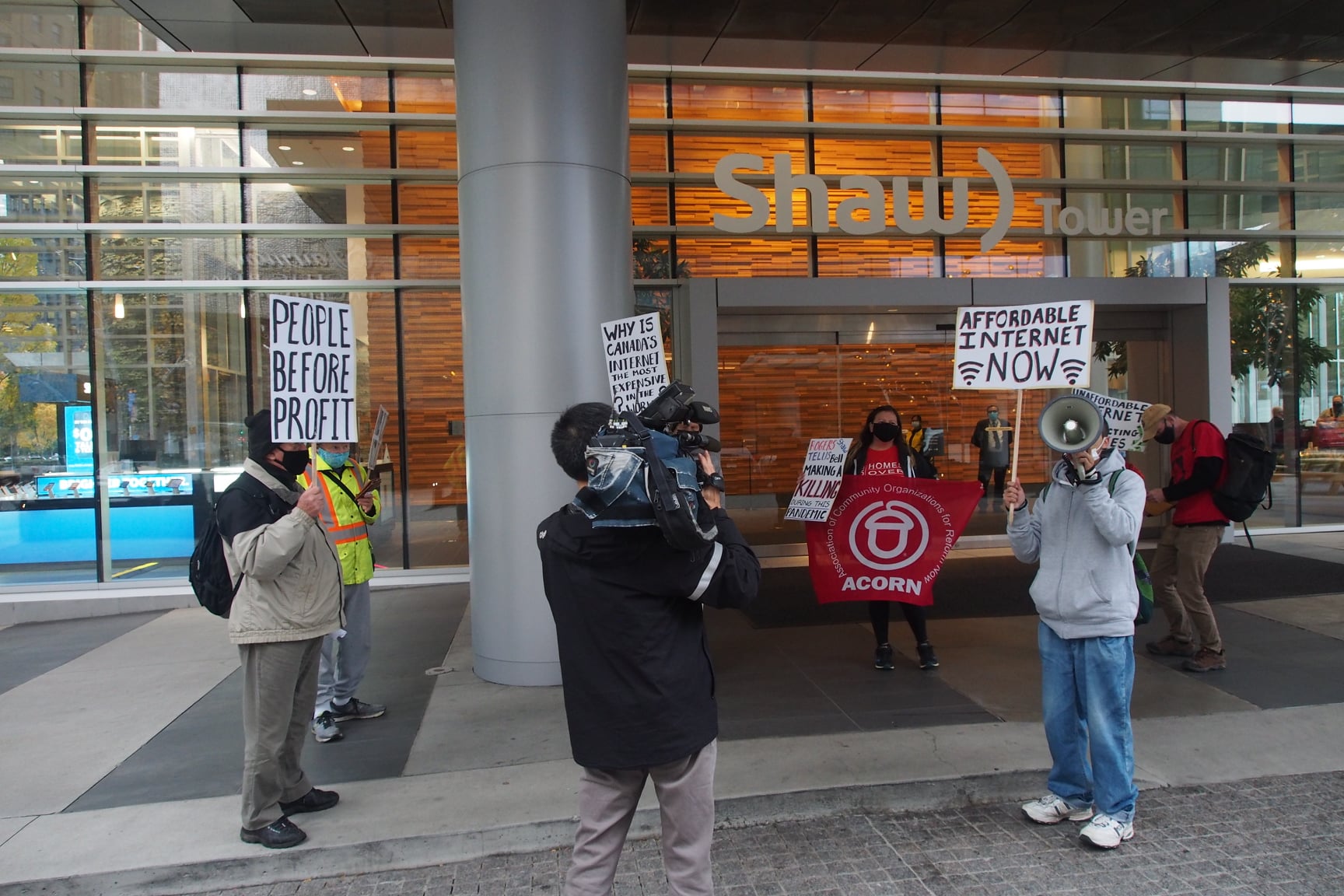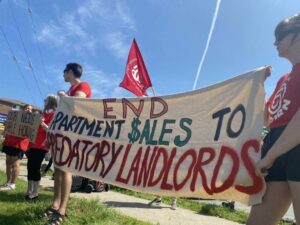 ACORN is a versatile mass-based union of low-to-moderate income tenants that builds the large-scale collective power needed to win. On the neighbouhrood or building level, ACORN does direct action and strategic campaigning against landlords to stop evictions, win repairs, and get the respect tenants deserve.
ACORN is a versatile mass-based union of low-to-moderate income tenants that builds the large-scale collective power needed to win. On the neighbouhrood or building level, ACORN does direct action and strategic campaigning against landlords to stop evictions, win repairs, and get the respect tenants deserve.
At the city-wide, provincial, and federal levels, ACORN consolidates the power built in the neighbourhoods and buildings so that we can win legislative campaigns to expand the tenant rights and social programs that our communities are demanding and need.
Housing is a place to live, not a commodity or investment product. Tenants are struggling to find affordable, secure, safe and healthy homes. That is why ACORN is fighting for tenant protections and community controlled housing. This is not an easy fight to win, and ACORN fundamentally believes that it will never be won by any one local group no matter how strong they are. To win, tenants need to be united across communities, across cities, across provinces, and across the world. Tenants want to come together, get organized on a large scale, and demand systemic change. ACORN organizes to make this happen. We are stronger together as tenants!
This platform is for tenants who want to fight back against the corporate greed that is ruining housing in Canada. It offers first step tools and resources to act collectively. Join ACORN to connect with tenants across your community, city, province, and country who are already fighting back. Building large scale community power in your building, and across your city, province and country is the best way to organise for change. This platform helps you do that.

